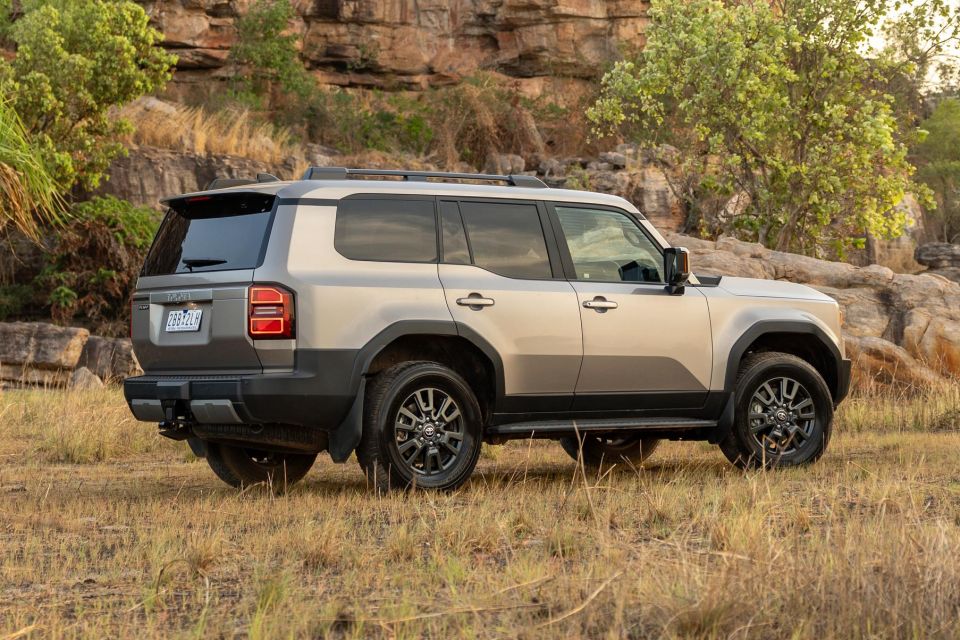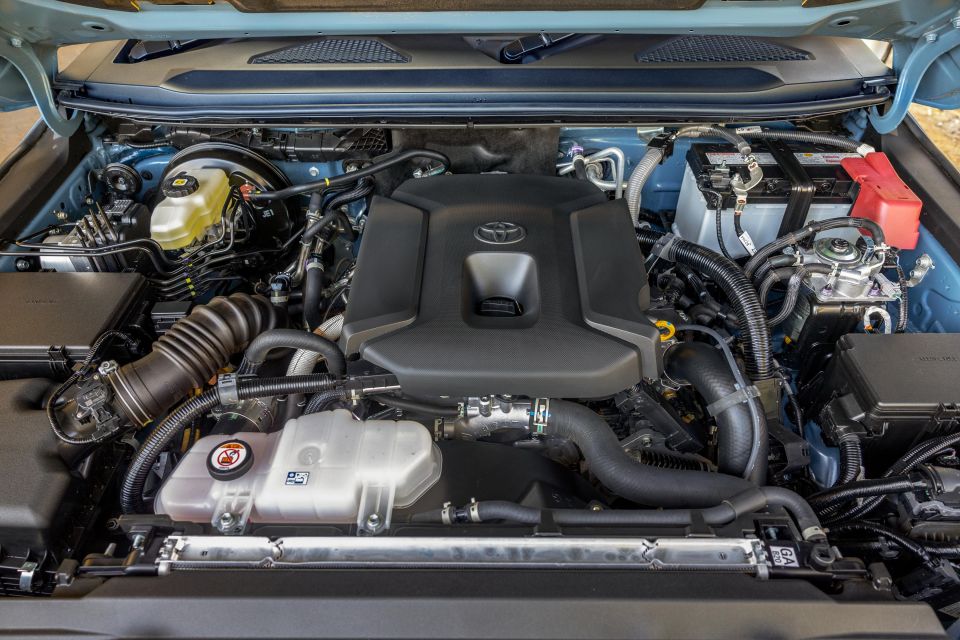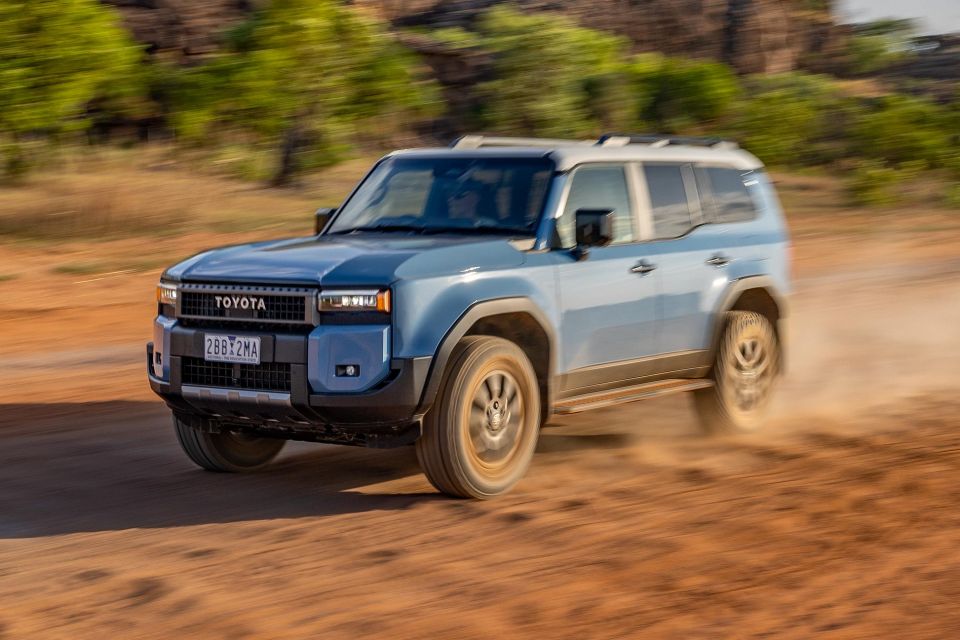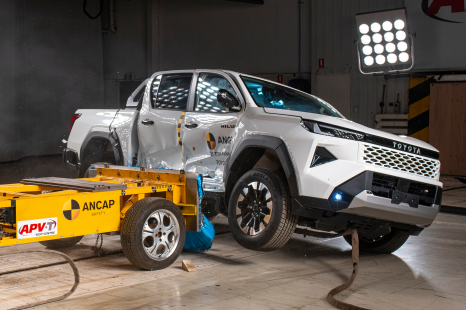

Damion Smy
Ford Everest Tremor gets 260kW V6 ‘Ranger Raptor’ treatment
11 Hours Ago
Toyota has confirmed the Prado's mild-hybrid turbo-diesel engine requires its AdBlue tank to be filled up approximately every 8000km.

Contributor


Contributor
The new-generation Toyota LandCruiser Prado 250 Series is the first Toyota in Australia to require AdBlue diesel exhaust fluid.
This is mixed with exhaust gases as they enter the catalytic converter to help reduce nitrous oxide (NOx) emissions. It’s common in trucks and buses, as well as a number of diesel-powered large SUVs and utes in order to meet stricter emissions standards.
Speaking at the new Prado’s local media launch, Toyota vice president sales and marketing Sean Hanley said all variants of the launch range require AdBlue.
100s of new car deals are available through CarExpert right now. Get the experts on your side and score a great deal. Browse now.

“With every new Prado, it has to have AdBlue,” said Mr Hanley.
“If in the event AdBlue is not added, the vehicle will become not operable. So you have to have AdBlue.
“If AdBlue runs out when you’re driving, you can still drive to your destinations. That’s important to understand.”
This means if you run out while driving and go to restart your vehicle, you won’t be able to do so without first adding AdBlue.
“[AdBlue is] available [to purchase at the] vast majority of service stations, particularly where there [are] trucks, but the vast majority in metro as well, and it will also be available at each of our dealers in the future,” Mr Hanley added.

Toyota has confirmed the Prado 250 Series can travel around 8000km, depending on use case, before you’ll need to top up the 17.4L AdBlue tank.
This is critical because it means owners will likely to need to top up the AdBlue between logbook services. The Prado 250 Series, like many diesel-powered Toyotas, requires servicing every six months or 10,000km, whichever comes first.
Toyota confirmed its dealers won’t top up the Prado’s AdBlue tank as part of a logbook service. Instead customers will be required to pay and fill it up themselves when needed.
Mr Hanley explained the way customers need to top up the Prado with AdBlue is “no different to refuelling [with diesel]”.

Although carmakers typically fit AdBlue exhuast fluid systems to ensure a vehicle’s powertrain meets stricter emission standards, like Euro 6, the Prado 250 Series’ 2.8-litre four-cylinder turbo-diesel mild-hybrid engine is currently only classified as a Euro 5 powertrain.
Toyota Australia has confirmed this four-cylinder turbo-diesel mild-hybrid powertrain can be adjusted to meet Euro 6 emissions standards in the future.
New versions of new cars, including SUVs and light commercial vehicles, sold from December 2025 will need to meet tougher Euro 6d emissions standards in Australia, replacing the existing Euro 5 measures.
The standards will then apply to all new vehicles on sale from 2028.
Another consideration with the Prado 250 Series, at least in its current form, is the New Vehicle Efficiency Standard (NVES) that will come into effect next year.

Manufacturers will now have a CO2 target, though a change was made after the NVES was initially announced – considered favourable for brands – that sees “heavy off-road passenger vehicles” like the Prado now lumped in with utes and vans.
These ‘Type 2’ vehicles have a higher 210g/km limit for 2025, as opposed to 141g/km for ‘Type 1’ vehicles such as hatchbacks and sedans. This, however, will be reduced to 180g/km in 2026, and then progressively reduced every year thereafter.
The Prado 250 Series is claimed to emit 200g of CO2 per kilometre.
Deliveries of the 2025 Toyota LandCruiser Prado 250 Series started earlier this month. At launch there are a total of five variants being offered. Pricing starts at $72,500 before on-roads for the GX, and extends to $99,990 before on-roads for the Kakadu.
In other markets there’s an i-Force Max petrol-electric hybrid powertrain offered in Prado, but at this stage it hasn’t been confirmed for Australia.
Where expert car reviews meet expert car buying – CarExpert gives you trusted advice, personalised service and real savings on your next new car.
Jack Quick is an automotive journalist based in Melbourne. Jack studied journalism and photography at Deakin University in Burwood, and previously represented the university in dance nationally. In his spare time, he loves to pump Charli XCX and play a bit of Grand Theft Auto. He’s also the proud owner of a blue, manual 2020 Suzuki Jimny.


Damion Smy
11 Hours Ago


Derek Fung
15 Hours Ago


Ben Zachariah
4 Days Ago


Matt Campbell
7 Days Ago


William Stopford
12 Days Ago


William Stopford
12 Days Ago